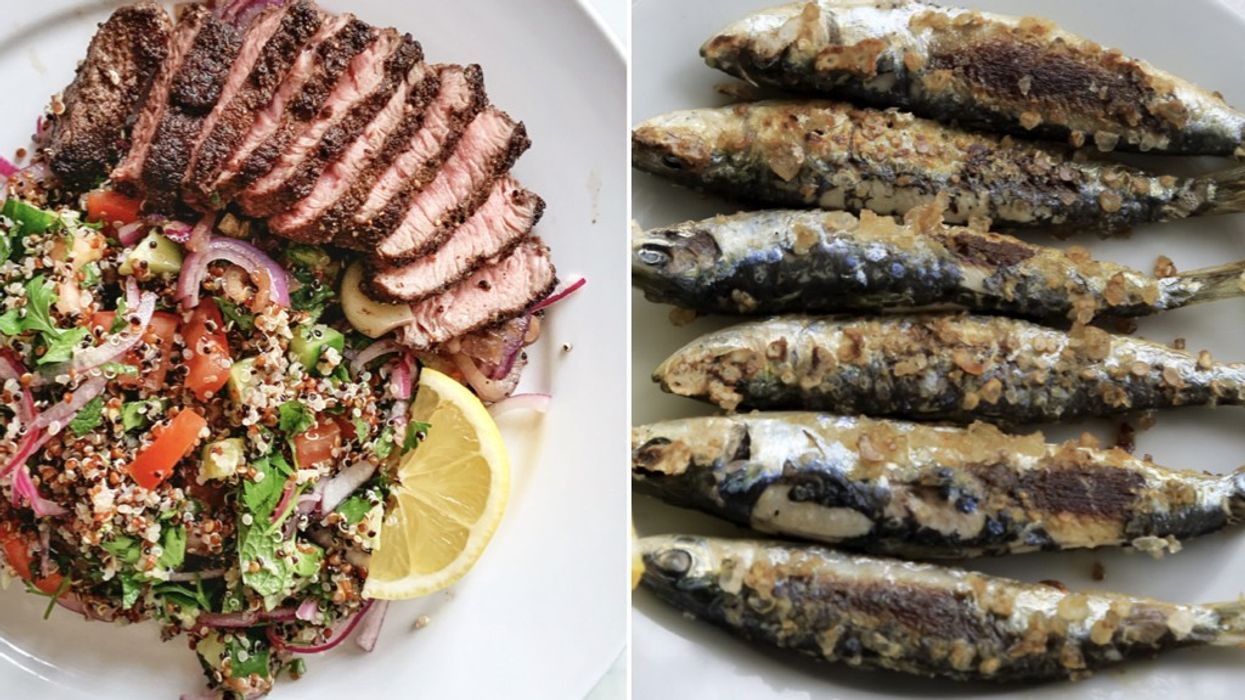Simple dietary swap could save 750,000 lives and reduce risk of heart disease, cancer and diabetes

Swapping red meat for herring and sardines could save 750,000 lives and slash rates of chronic disease
|Getty Images

- Swapping red meat for herring and sardines could save 750,000 lives by 2050
- In the UK alone, it could prevent 10 percent of heart disease deaths in the next 26 years
- The simple swap could reduce deaths from stroke, diabetes and bowel cancer
Don't Miss
Most Read
Swapping red meat for oily fish has long been recommended but a new study demonstrates the enormous impact it would have on a national and global level.
Globally, it could save up to 750,000 lives a year by 2050, academics estimate.
In Britain alone, reducing red meat intake by eight percent and replacing it with forage fish, such as sardines or herring could prevent 10 percent of heart disease deaths in the next 26 years, researchers suggested.
Deprived areas would reap the most benefit from making this simple dietary tweak, the analysis found.

For the UK, replacing eight percent of red meat intake with forage fish in 2050 could prevent 10 percent of heart disease deaths
|Getty Images
The small fish are rich in nutrients with a low carbon footprint, although only about 26% of those caught are consumed by humans.
The remainder, including a significant amount fished from the coasts of countries experiencing malnutrition and food insecurity, are turned into fishmeal and fish oil, which feeds more expensive farmed seafood, such as salmon and trout.
Academics explored whether swapping red meat intake for these fish could lower disease rates and save lives.
Chronic diseases accounted for about 70 percent of all deaths worldwide in 2019, researchers said, with heart disease, bowel cancer, diabetes and stroke causing almost half (44 percent) of the figure.
The team projected red meat consumption for the coming decades in 137 countries and estimated the availability of forage fish as a substitute for red meat by 2050 using historical fishing data.
They estimated the swap could prevent between 500,000 to 750,000 deaths globally by 2050, particularly when it comes to heart disease.
For the UK, the study suggested that replacing eight percent of red meat intake with forage fish in 2050 could prevent 10 percent of heart disease deaths, while reducing deaths from stroke, diabetes and bowel cancer by one to two percent.
Researchers recognised forage fish are not sufficient to replace all red meat but suggested they could be a “promising alternative”.
Red meat is a good source of some nutrients, such as protein, iron, zinc and vitamin B12. The NHS recommends eating beef, lamb and pork as part of a healthy diet.
LATEST DEVELOPMENTS

If you eat more than 90g of red or processed meat a day, it's recommended that you reduce your intake to 70g or less a day
|Getty Images
However, a growing body of evidence shows a clear link between high intake of red and processed meats and a higher risk for heart disease, cancer, diabetes, and premature death.
If you eat more than 90g of red or processed meat a day, it's recommended that you reduce your intake to 70g or less a day.
Researchers conclude that there is a “need to limit the consumption of greenhouse gas emission-intensive red meat and shift to food and are both healthy and environment friendly” in a bid to “reduce the burden” of diet-related chronic diseases in the coming decades.
Policies should also be created to allocate fish stocks to regions where they are most needed, such as Africa, parts of Asia, Latin America and the Caribbean, to limit the “global burden of disease”, researchers suggested.










